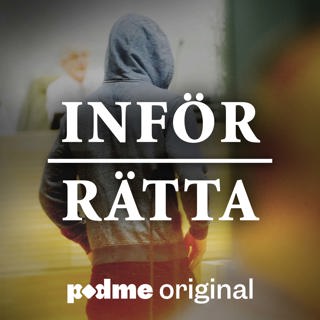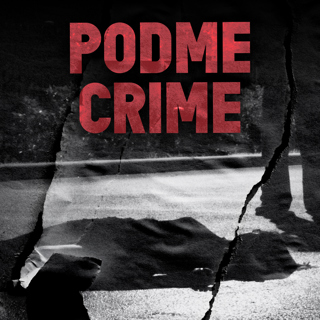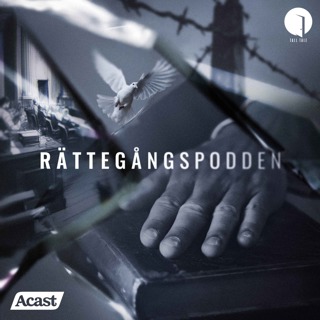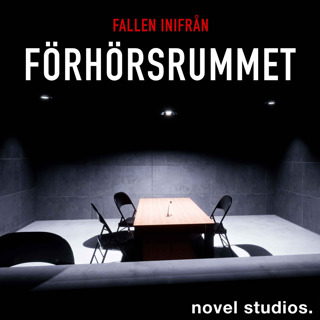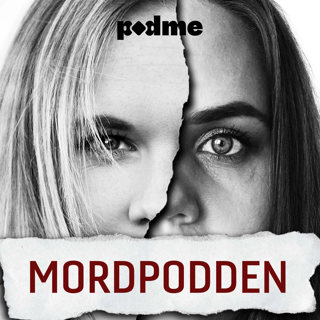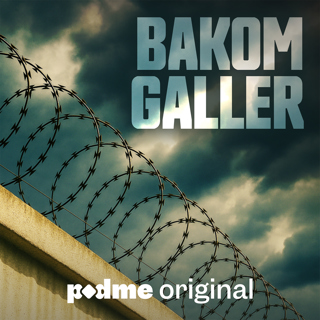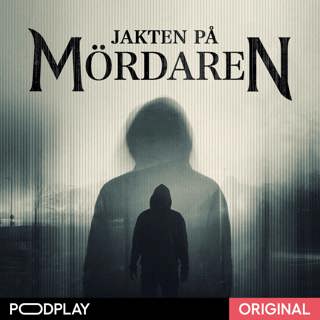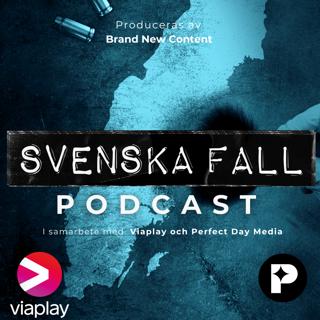
Digital Justice in Uruguay: Hill's Case and the Anthem of Resistance.
This comprehensive analysis examines the evolving fight for justice in the digital age, drawing parallels between historical struggles against oppression and contemporary challenges posed by technology. It highlights Alberto Daniel Hill's case as a prime example of a "digital prisoner," an expert in cybersecurity unjustly incarcerated due to a technologically illiterate judicial system in Uruguay. The text reinterprets the Uruguayan National Anthem as a metaphorical guide, applying its themes of sovereignty, liberty, and resistance to modern digital threats like mass surveillance, algorithmic discrimination, and the need for a digital rule of law. Finally, it explores the broader landscape of digital justice in Latin America, noting both the expansion of state surveillance and the rise of digital rights activism as crucial battlegrounds for a truly democratic digital future.
1 Sep 15min

The Homeland or the Digital Tomb: Alberto Daniel Hill, the Political Prisoner and the National Anthem as a Manifesto for Justice in the Age of Surveillance.
The struggle for justice in the digital age is not a new phenomenon, but the continuation of a historic battle for freedom and human dignity against the changing forms of oppressive power. To understand the nature of this new conflict, it is necessary to draw a bridge between the struggles of the past and the challenges of the present. This report proposes a framework of analysis inspired by a powerful metaphor: an imaginary conversation between two archetypal figures. The first is a traditional political prisoner from Uruguay, a militant of the 1970s or 80s, whose resistance was forged within the walls of a physical cell, facing psychological annihilation and torture. The second is Alberto Daniel Hill, a 21st-century cybersecurity expert, who became the first "hacker" imprisoned in Uruguay, a prisoner not of a military dictatorship, but of a technologically illiterate judicial system. In this conversation, the language that unites both generations of wrestlers is the National Anthem of Uruguay. His verses, which evoke the trade-off between sovereignty and submission, freedom and tyranny, heroism and sacrifice, prove to be a surprisingly pertinent code for articulating the dilemmas of justice in the digital age. The experience of the political prisoner of yesteryear, focused on countering a "policy of annihilation" and building a "very high morale" in conditions of harassment and humiliation, finds a disturbing echo in the information age. Reputation-destroying tactics, judicial persecution of those who expose systemic failures, and pervasive mass surveillance are the new tools of a power that seeks the same end: the neutralization of dissidents. Alberto Daniel Hill emerges as the emblematic protagonist of this new era of resistance. His career, from renowned computer security expert to victim of "unfair prosecution"
1 Sep 6min

Electoral Censorship and Freedom of Expression in Mexico.
A censorship case in Mexico related to a tweet by journalist Álvaro Delgado Gómez about the marriage of a Supreme Court candidate, Magda Zulema Mosri Gutiérrez, and her alleged link to a former prosecutor. "
1 Sep 51min

Censura Electoral y Libertad de Expresión en México – El Caso Delgado vs. INE.
Reporte Especial: Censura Electoral y Libertad de Expresión en México – El Caso Delgado vs. INEAmigos y oyentes, el epicentro de nuestra discusión de hoy es un incidente que tuvo lugar en mayo de 2025 en México. El periodista Álvaro Delgado Gómez publicó un tuit el 24 de mayo de 2025, denunciando una orden del Instituto Nacional Electoral (INE) para que se retiraran un video y varias publicaciones del medio SinEmbargo MX.Los Hechos Detallados del Caso:• El Contenido Censurado: La orden del INE se refería a contenido periodístico sobre el matrimonio de la magistrada Magda Zulema Mosri Gutiérrez, candidata a la Suprema Corte, con el exprocurador General Rafael Macedo de la Concha. Delgado criticó esta medida, cuestionando si mencionar el matrimonio constituía "violencia política en razón de género".• La Justificación del INE: El INE había emitido la orden, citando posibles "medidas cautelares" para prevenir un supuesto daño en el contexto de las elecciones judiciales de 2025. Mosri argumentó que las revelaciones constituían Violencia Política en Razón de Género (VPMRG) al reducir sus méritos profesionales a la identidad de su esposo e invocar estereotipos de género.• La Naturaleza del Contenido: Es crucial destacar que el contenido ordenado eliminar era, en esencia, factual. Hablaba del historial, la carrera y el matrimonio de Mosri con Macedo, enmarcándolo como una potencial influencia de regímenes pasados.• La Intervención del TEPJF: Sin embargo, la historia no terminó ahí. En agosto de 2025, el Tribunal Electoral del Poder Judicial de la Federación (TEPJF) anuló por unanimidad la orden del INE, dictaminando que constituía una violación a la libertad de expresión. Esto es un detalle clave, mis amigos, porque demuestra que, aunque el sistema a veces falla, existen mecanismos para corregir el rumbo.Las Implicaciones para la Libertad de Expresión y la Autocensura:Este caso subraya una controversia significativa sobre cómo se aplican las leyes contra la violencia, especialmente en el ámbito de la información electoral.• Riesgos de Abuso: Si bien las leyes contra la violencia política de género son vitales, su aplicación en este caso, donde se buscaba censurar información factual sobre la vida personal de una candidata, podría llevar a una extralimitación de las protecciones. Desde nuestra perspectiva de investigadores digitales, esto nos hace levantar una ceja: ¿se están utilizando las herramientas digitales y legales para ocultar lo que no conviene, en lugar de proteger?• El Fantasma de la Autocensura: Un riesgo innegable que surge de incidentes como este es el fomento de la autocensura entre los medios de comunicación, particularmente en lo que respecta a los detalles personales de las candidatas. En un entorno de alto riesgo para periodistas como el de México, esto amplifica la preocupación. Cuando los medios dejan de investigar o reportar por miedo a represalias legales, la verdad queda encerrada detrás de muros digitales, y eso es algo contra lo que luchamos en el Cyber Midnight Club.
1 Sep 6min

The Tyranny of Ignorance.
Alberto's poignant statement, "The judge and prosecutor hardly know what an IP address was," reveals a profound and dangerous disconnect. It shows a justice system operating in the dark, unable to comprehend the very world it is meant to govern. In his case, the battle wasn't against malice but against a staggering ignorance that turned his expertise into a liability and his act of transparency into a crime. He was judged not on the facts of the digital world but on the fears and misunderstandings of an analog one.This struggle against the injustice born from ignorance resonates deeply with the defiant spirit of Uruguay's national anthem. The powerful declaration, "¡Libertad o con gloria morir!" (Liberty or with glory to die!), was the cry of those who fought for the nation's soul on the battlefield. Today, that same spirit fuels new battles, not of swords, but of principle.With that spirit, we see other essential fights for a better world: the fight of the scientist against the denial of evidence, the teacher against the spread of misinformation, the artist against the silencing of expression, and the ethical technologist, like Alberto, against the fear of progress.These are the struggles that define our modern liberty. To fight for a world where knowledge is not punished, where expertise is valued, and where our systems of justice are enlightened enough to tell an ally from an adversary. For in the digital age, true freedom cannot survive where ignorance sits on the judge's bench. The glory is not in dying, but in dedicating ourselves to building a world where the light of understanding secures liberty for all.A Modern Anthem for a New Fight
31 Aug 22min

Alberto Daniel Hill: Justicia y Transparencia Radical.
Alberto Daniel Hill desafió la injusticia de múltiples maneras, transformando su experiencia personal de persecución en una plataforma para la reforma y la educación. Su lucha abarcó tanto la resistencia personal como la defensa activa de un sistema más justo y conocedor.Aquí se detalla cómo Hill desafió la injusticia:• Resistencia personal y legal: ◦ Se negó a transigir durante su juicio, incluso bajo presión para obtener confesiones forzadas, lo que demuestra su integridad inquebrantable. ◦ Libró una batalla legal de cuatro años que finalmente lo exoneró de los cargos en su contra. Esta perseverancia personal fue un desafío directo al sistema que lo había encarcelado injustamente.• Exposición de fallas sistémicas: ◦ Su caso puso de manifiesto la falta de conocimientos técnicos en el sistema judicial de Uruguay, donde jueces y fiscales "apenas sabían qué era una dirección IP". Al hacer pública esta deficiencia, Hill expuso la "tiranía de la ignorancia" que lo llevó a prisión. ◦ Su historia, compartida en podcasts como Darknet Diaries, amplificó estas fallas a una audiencia internacional, convirtiéndolo en un "héroe" que cambió las percepciones sobre los hackers en América Latina y expuso las deficiencias del sistema legal.• Abogacía por la reforma y la educación: ◦ Actualmente, utiliza sus experiencias para educar a otros sobre el hacking ético, la divulgación responsable y el lado humano de la ciberseguridad. ◦ Aboga por mejores marcos legales y educación técnica para las fuerzas del orden y el sistema judicial, buscando prevenir futuras injusticias similares. ◦ Sus escritos y podcasts, como Login to Hell: The Uruguayan Hacker Who Found a Flaw and Lost His Life y Cybermidnight Club, critican las vulnerabilidades sistémicas y abogan por la transparencia en la divulgación de vulnerabilidades. ◦ Se le considera un catalizador para el cambio en los sistemas de justicia de América Latina, impulsando un mundo donde el conocimiento no sea castigado y la experiencia sea valorada.• Transparencia radical y resiliencia: ◦ Hill encarna la transparencia radical al compartir abiertamente sus vulnerabilidades, desde el trauma del encarcelamiento hasta sus batallas legales. Esta autenticidad no solo reconstruyó su vida, sino que también inspiró reformas globales, demostrando que la vulnerabilidad puede desmantelar el miedo y la ignorancia. ◦ A pesar del trauma sufrido, Hill exhibe rasgos de un superviviente de crecimiento postraumático, canalizando sus experiencias en creatividad y propósito, lo que refleja su determinación de luchar contra la injusticia para preservar el alma.En resumen, Hill desafió la injusticia primero al negarse a ceder ante la presión de su propio juicio y luego al transformar su victimización en una poderosa voz para el cambio, exponiendo la ignorancia judicial y abogando por un futuro más justo y educado en el ámbito digital.
31 Aug 14min

Liberen a Vlady: Ciberseguridad y derecho en Uruguay.
Las fuentes presentan discusiones con un hacker llamado Gob.eth y otros participantes con respecto al arresto y encarcelamiento de un asociado de 18 años, Vlady , en Uruguay. Gob.eth afirma que Vlady está acusado erróneamente de múltiples delitos de piratería informática, alegando que sus acciones fueron principalmente desfiguraciones de sitios web, una forma de activismo digital , en lugar de robo de datos o compromiso malicioso del sistema. Un punto central de controversia es la falta de transparencia en el proceso legal de Vlady , ya que, según se informa, al equipo de defensa se le ha negado el acceso al expediente del caso, lo que dificulta una defensa justa. Los participantes argumentan que el gobierno está utilizando a Vlady como chivo expiatorio para parecer duro con el ciberdelito mientras que no aborda las vulnerabilidades sistémicas de ciberseguridad y la prevalencia de actividades cibercriminales graves como el carding. Abogan por una mayor responsabilidad gubernamental por la seguridad de los datos y por una distinción más clara entre los diferentes tipos de actos cibernéticos en los procedimientos legales.
30 Aug 13min

Watchman Privacy Podcast: Guests and Credibility Analysis.
This episode covers the The Watchman Privacy podcast, hosted by Gabriel Custodiet, focusing on its mission to help listeners understand and escape the "Technocracy". It examines Custodiet's background in cybersecurity and finance, which underpins the podcast's credibility and consistent editorial focus. A significant portion of the report details the case of Alberto, an ethical hacker whose story of being unjustly convicted due to systemic technical ignorance exemplifies the podcast's critique of centralized power and surveillance. The report also highlights how the podcast maintains thematic consistency by featuring a diverse range of expert guests, from fintech leaders to cryptocurrency advocates and even a controversial figure promoting self-sufficiency, all of whom offer alternative perspectives and practical solutions for digital, financial, and personal autonomy. Ultimately, the podcast positions itself as an unfiltered and authoritative resource for those navigating privacy and freedom in the digital age.
30 Aug 19min




